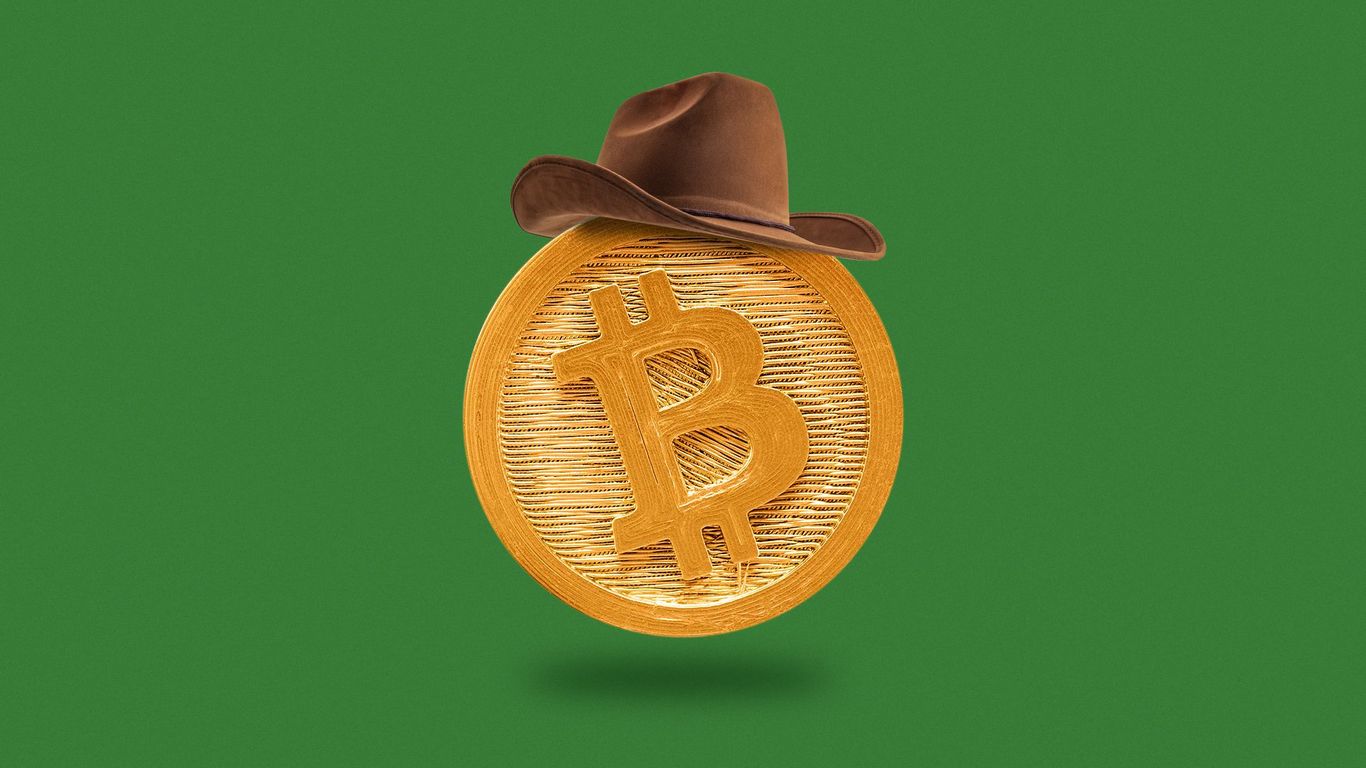
Coinbase got the headlines this week for going public, but another crypto category is also booming: derivatives exchanges.
Why it matters: These exchanges are taking crypto investor appetite for speculation to the next level, enabling bets on a range of events and assets — even Coinbase’s own IPO, months before the actual float.
The big picture: “The defining companies in crypto are the exchanges,” says FTX CEO Sam Bankman-Fried, whose two-year-old company has become one of the most popular derivatives exchanges. “That’s not necessarily true on Wall Street.”
- Unlike in traditional finance, crypto exchanges provide services end-to-end, including the wallet, asset custody, matching engine and so on, putting them at the center of the industry's activity.
- Coinbase, for example, started out as a digital wallet for storing and transferring bitcoin, and over the years added an exchange to trade digital tokens — while building out the services needed to support that.
Between the lines: The growing popularity of crypto derivatives, which are largely based abroad due to regulations, comes down to capital efficiency, according to Bankman-Fried.
- Users can put up all kinds of collateral, and get tons of leverage, 100x up to 125x, depending on the exchange.
- FTX also managed to harness some of the stock market zeitgeist, debuting futures ahead of the public listings of companies like Airbnb, Coinbase, and most recently Robinhood. It also launched tokenized stock for Tesla, and a WallStreetBets index quarterly futures contract during the retail trading saga in January.
And that translates to big business for the exchanges.
- Bitmex, a rival exchange founded in 2014 and derivatives trailblazer , was handling about $65 billion a month in trading volume by the summer of 2020, according to Bloomberg.
- FTX (which also runs a spot exchange) saw roughly $10 billion in trades per day in April, raking in about $2 million in daily revenue from fees. The company says it currently has an $800 million run rate.
- And according to FTX’s own tracking of other exchanges, there’s just under $100 billion in derivatives trade per day on Binance, over $78 billion on Huobi, and about $36.5 billion on OKEx.
Yes, but: Like much of the rest of crypto, the lack of a clear regulatory regime in the U.S., especially with regards to newer derivatives like tokenized stock, is keeping crypto derivatives exchanges from being able to operate here.
- The CTFC has signaled that crypto derivatives fall within its jurisdiction, but is still behind on providing new rules and regulations.
- U.S. residents can still trade some very limited derivatives, like bitcoin futures, via a few large regulated exchanges like the Chicago Board Options Exchange and the CME Group exchange.
Meanwhile, Bitmex has run afoul U.S. regulators for allegedly soliciting American customers without being licensed. But, again, there is no license to get.
- CEO Arthur Hayes and three others also face criminal charges for failing to implement sufficient anti-money laundering measures, and knowing of certain illicit activities.
- The CFTC is also reportedly probing Binance for letting U.S.-based users to trade derivatives.
The bottom line: We've entered a new era of cryptocurrency exchanges.
"exchange" - Google News
April 17, 2021 at 07:30PM
https://ift.tt/3e44Acs
Crypto derivative exchanges are the next frontier - Axios
"exchange" - Google News
https://ift.tt/3c55nbe
https://ift.tt/3b2gZKy
Exchange
Bagikan Berita Ini














0 Response to "Crypto derivative exchanges are the next frontier - Axios"
Post a Comment